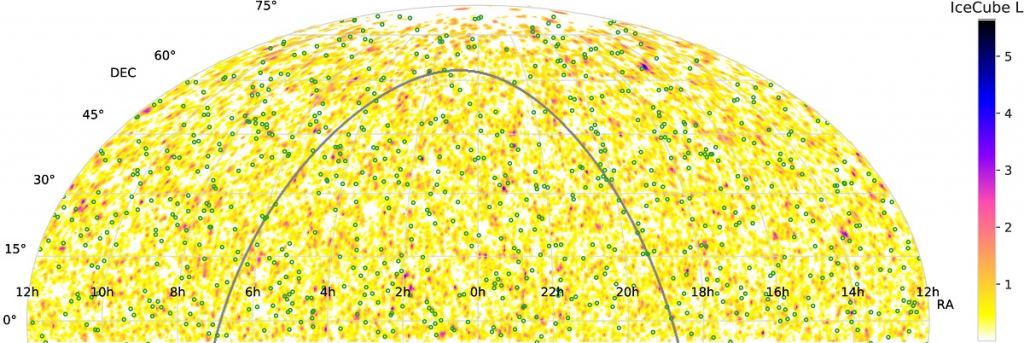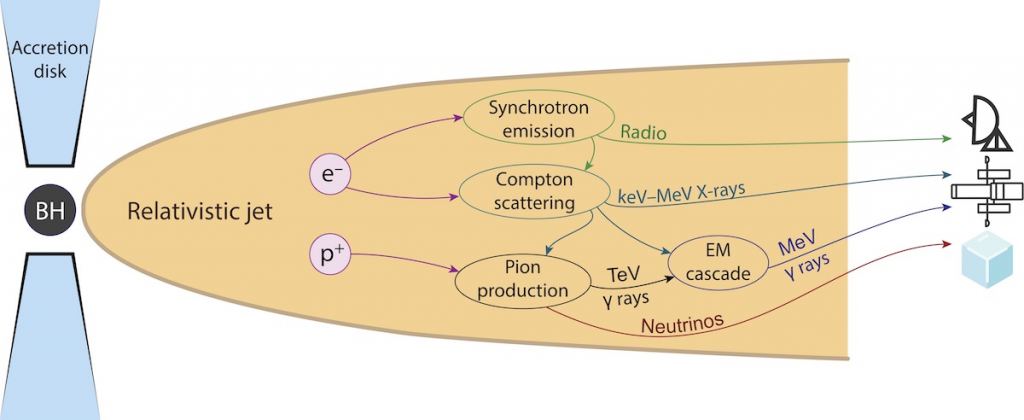Buried under the ice at the South Pole is a neutrino observatory called IceCube. Every now and then IceCube will detect a particularly high-energy neutrino from space. Some of them are so high energy we aren’t entirely sure what causes them. But a new article points to quasars as the culprit.
Quasars are distant supermassive black holes. During the early universe, many of these black holes were extremely active. The hot material surrounding these black holes can emit everything from x-rays to powerful bursts of radio light. In this new work, the team analyzed 7 years of data from IceCube and found an interesting correlation between quasars and high-energy neutrinos.

The data showed that most of the high-energy neutrinos originated from the centers of quasars. Their detection often occurs around the time that a quasar undergoes a strong radio burst. Since neutrinos travel at nearly the speed of light, photons and neutrinos reach Earth and nearly the same time. This suggests that the quasar radio bursts are producing neutrinos.
To explain this, the team proposed a rough model. Strong radio quasar bursts occur when hot, ionized gas near the black hole flows through strong magnetic fields. The charged particles are accelerated, causing them to emit radio light. But a rapid flow of dense plasma also causes nuclei and electrons to collide with each other. The high-energy collision of protons can create pions, which emit gamma rays and neutrinos when they decay.

This is only a rough model. To study their idea further, the team will gather more radio observations of quasars, as well as data from a neutrino telescope known as the Baikal Gigaton Volume Detector. Together this will allow them to study the central regions of quasars in detail.
Reference: Plavin, A. V., et al. “Directional Association of TeV to PeV Astrophysical Neutrinos with Radio Blazars.” The Astrophysical Journal 908.2 (2021): 157.

